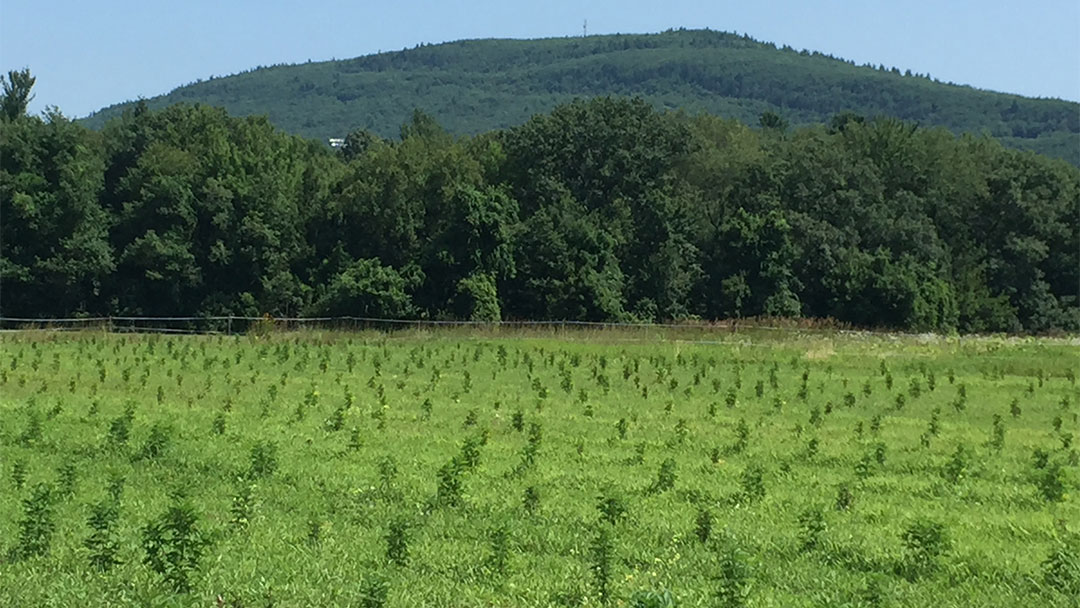Full Spectrum vs. Broad Spectrum CBD
Apr 14th 2022
When something positively changes your life, it is only natural that we want to share it with others. Lately, you might have heard about or seen CBD products come into the market that people are raving over. CBD is indeed a natural health supplement that has been having a positive impact worldwide for humans and animals.
However, with so many different types and kinds of CBD products out there, it is hard to know which one is right for you. You might have heard of Full Spectrum or Broad Spectrum CBD, but what is the difference between the two? Full Spectrum CBD includes many of the beneficial compounds and cannabinoids of the cannabis plant, including usually no more than 0.3 % THC. Broad Spectrum CBD, however, has all those same compounds but with no THC.
Related: This is How We Roll
Is CBD Legal?
CBD is a non-psychoactive compound that is found in the cannabis (marijuana) plant. Unlike the compound THC, CBD does not give a person a "high" or "euphoria." When the Farm Bill was passed, it allowed CBD to be grown, bought, and used at federal level. However, the hemp being produced had less than 0.3 THC. However, each state itself has the power to decide which kinds of cannabis-derived products are legal within their borders.
Not only does the legality of CBD differ for every state in the U.S., but every country in the world also has its own rules on cannabis products. When traveling globally or crossing borders, it is always good to check on the specific CBD rules and regulations.

The Difference Between CBD and THC
THC is derived from the cannabis plant, whereas CBD can be made from both marijuana and hemp plants. CBD and THC are two of the hundreds of naturally occurring compounds in marijuana, and each of these compounds affects our bodies and brains differently.
Much CBD is often derived from hemp plants and contains no amount of THC. However, well-rounded full-spectrum products are available as well. Full-spectrum oils contain all of the beneficial naturally occurring cannabinoids in the cannabis plant. Most full-spectrum products include less than 0.3 percent of THC, the compound responsible for the "euphoric high."
Related: Why Hemp?
A 2018 study has suggested that full-spectrum CBD is more effective for pain than hemp CBD isolate because of the combined effects when taken together. Furthermore, it tends to be less processed and more natural than CBD from the hemp plant alone. And is not known to have serious side effects.
Extraction Process
There are different ways to extract the compound CBD from the cannabis or hemp plant.
These include:
- Solvent Extraction: Although this is an effective way to extract oil, this method of using solvents sometimes leaves behind unwanted residues, which can pose health risks. Solvents used for separation can be dangerous and affect the quality of the CBD product itself.
- Steam Distillation: Steam is sometimes used in manufacturing CBD oils. The steam helps separate the oil from the plant's materials. Not as widely used or as effective as the carbon dioxide method, but still used as a more natural way of extracting the essential oils.
- Carbon Dioxide Extraction: To separate the oil from the plant material, manufacturers use a process involving CO2. This method is highly used and popular, but it is also great for producing highly concentrated high-quality CBD.
- Lipid Extraction: Lipid extraction is a newer technique used to draw out CBD and other cannabinoids and terpenes from hemp. Lipids are organically occurring fatty acids that provide a safe toxin-free way to separate the plant compounds with minimal cleaner processing.
Pros and Cons of Full Spectrum CBD
Full-Spectrum CBD oil contains just enough THC to be effective, not create the "high" usually associated with marijuana. Full-spectrum also usually contains terpenes from cannabis, giving plants their unique flavor and scent. With the additions of extra terpenes and THC, Full-spectrum is known for its "entourage effect." This is the theory that when multiple cannabis plant compounds are present in a CBD product, it increases the chance for potential benefits.
Some of these potential health benefits include:
- Antioxidant
- Anti-seizure or spasm
- Reducing anxiety and pain
- Anti Inflammatory
Some of the cons of full-spectrum CBD oil are:
- If taken improperly or overly dosed, the person or animal might feel a feeling of short euphoria
- Positive drug tests, even when the amount of THC is less than 0.3 percent
Pros and Cons of Broad Spectrum CBD
Broad Spectrum CBD oil is excellent if you are looking for a boost of health but without the involvement of THC or any unwanted side effects. Although Broad Spectrum seems to be more potent than CBD by itself, both are associated with relieving pain, reducing anxiety, improving skin and hair, and being a sleep aid.
The only cons of broad-spectrum are that it might not be as powerful as a full-spectrum product. Sometimes with broad-spectrum and CBD isolate products, you will need to take more to get the same benefits as a lower dose of a full-spectrum oil.

Conclusion
No matter which CBD, if it is full-spectrum or broad-spectrum CBD oil, that is right for you; it is essential to find a product made from cultivated hemp organically grown with care close to home. A CBD oil made from a plant that is harvested by hand with love and processed and Packaged to perfection with a lab-tested guarantee of quality.
Related: Organic Hemp Grown on the Family Farm
As new as CBD all seems in its many forms, let's not forget that hemp dates back to 8000 BC. U.S. Presidents grew fields of it, and Ben Franklin himself owned a mill that manufactured hemp paper. Hemp is and always has been a cornerstone for agriculture, health, and development. Because of all this, CBD oil is a victorious step towards health and comfort for the future.
Find the perfect CBD for you today at Bordertown Farm. Shop now.
